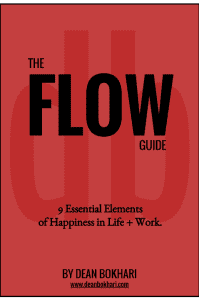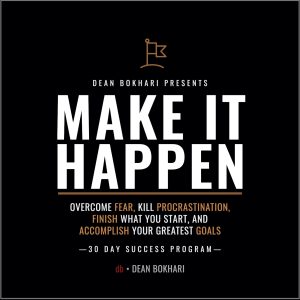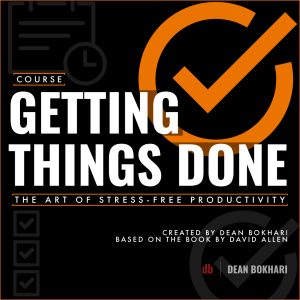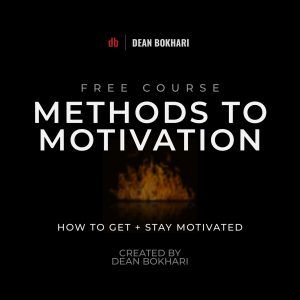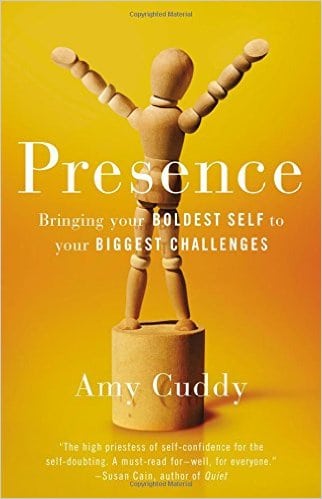
Presence
Bringing Your Boldest Self to Your Biggest Challenges
by Amy Cuddy
Get Book: Print | eBook | Audiobook
Member Downloads:
| Audiobook not playing? → | Members: Login › | or | Join Now › |
About
In describing the meaning of presence, author Amy Cuddy writes,
“The research I’ve been doing for years now joins a large body of inquiry into a quality I call presence. Presence stems from believing in and trusting yourself—your real, honest feelings, values, and abilities. That’s important, because if you don’t trust yourself, how can others trust you? Whether we are talking in front of two people or five thousand, interviewing for a job, negotiating for a raise, or pitching a business idea to potential investors, speaking up for ourselves or speaking up for someone else, we all face daunting moments that must be met with poise if we want to feel good about ourselves and make progress in our lives. Presence gives us the power to rise to these moments.”
— From Presence by Amy Cuddy
Amy Cuddy is best known for having delivered the 2nd most-watched TED talk in history. The talk is titled, “Your Body Shapes Who You Are” and I’ve embedded it for you below.
Definitely worth watching if you haven’t already done so.
Cuddy wrote Presence to help people of all walks of life develop a strong sense of self – as the subtitle of her book suggests, presence is about bringing your boldest self to your biggest challenges.
When we develop our presence, we’re developing a quality within ourselves that helps us:
- Command respect and inspire others
- Speak with poise and clarity
- Become genuinely likable to others
- Develop an inner sense of confidence that helps us feel good about ourselves and make progress in our lives
We’ll talk more about how presence helps us lean into the aforementioned qualities, along with much, much more in the Big Ideas we’ll be sharing in this book summary.
So, are you ready to dive in?
Let’s start with some crucial quotes from Presence…
Crucial Quotes
“Presence, as I mean it throughout these pages, is the state of being attuned to and able to comfortably express our true thoughts, feelings, values, and potential.”
— From Presence by Amy Cuddy
“focus less on the impression you’re making on others and more on the impression you’re making on yourself.”
— From Presence by Amy Cuddy
“The strongest predictors of the entrepreneurs who got the money from venture capitalists were these traits: confidence, comfort level, and passionate enthusiasm. Those who succeeded did not spend their precious moments in the spotlight worrying about how they were doing or what others thought of them.”
— From Presence by Amy Cuddy
BIG IDEAS
- What is Presence?
- Self-affirmation theory
- Use “priming” to strengthen your personal power
- Be mindful of the way you carry yourself
- Expand your power by expanding your body
- Small devices can lead to small presence
- Get excited!
- Fake it until you become it
1. What is Presence?
“Presence, as I mean it throughout these pages, is the state of being attuned to and able to comfortably express our true thoughts, feelings, values, and potential.” — From Presence by Amy Cuddy
Here’s the thing about presence: it comes and it goes (a lot like motivation.)
It’s a moment-to-moment type of experience that is not permanent in nature.
In other words: there’s a ton of pieces to the puzzle when it comes to developing presence.
So the question is, how does presence emerge?—what are the pieces to the puzzle?
As Cuddy tells us:
“Presence emerges when we feel personally powerful, which allows us to be acutely attuned to our most sincere selves. In this psychological state, we are able to maintain presence even in the very stressful situations that typically make us feel distracted and powerless. When we feel present, our speech, facial expressions, postures, and movements align. They synchronize and focus. And that internal convergence, that harmony, is palpable and resonant—because it’s real. It’s what makes us compelling. We are no longer fighting ourselves; we are being ourselves. Our search for presence isn’t about finding charisma or extraversion or carefully managing the impression we’re making on other people. It’s about the honest, powerful connection that we create internally, with ourselves.” — From Presence by Amy Cuddy
In short: Presence comes from within.
Our presence emerges when we develop our personal power, and begin believing in and trusting ourselves.
Presence rises to the forefront when we bring out the most authentic version of ourselves—when we “show up” in congruence with our truest feelings, values, and abilities.
Presence is a beautiful thing.
But it can be difficult to call upon when we need it most.
And that’s why we must master our ability to become as present as possible, as often as possible. Which is what this book summary is dedicated to helping us do.
2. Self-affirmation theory
“The kind of self-affirmation I’m talking about—the kind whose effects researchers have studied—doesn’t have anything to do with reciting generic one-liners in the mirror, nor does it involve boasting or self-aggrandizement.
Instead it’s about reminding ourselves what matters most to us and, by extension, who we are.
In effect, it’s a way of grounding ourselves in the truth of our own stories. It makes us feel less dependent on the approval of others and even more comfortable with their disapproval, if that’s what we get.” — From Presence by Amy Cuddy
Imagine if you walked into work tomorrow morning, and your boss asked you to give a highly stressful presentation to the most important people in the company—and you’ve got no time to prepare, so it’ll have to be on the fly…
Oh, and this presentation you’re giving?
It’ll make you or break you in the eyes of upper management.
Super stressful, isn’t it?
If you’re like most people, a scenario like the one we just mentioned is more than enough to totally stress you out—which results in a spike of a stress hormone called cortisol surging through your body.
As it turns out, researchers have actually simulated similar scenarios to the one we just described—and they’ve figured out a fascinating coping mechanism to help us deal with these types of anxiety-inducing situations… Wanna know what it is?
The researchers uncovered, that when folks are placed in stressful situations, their cortisol spikes dramatically, however, if they first think about a meaningful core value that’s important to them, and write down a description of why it’s important to them, they can weather the storm (of a stressful situation) without the typical dramatic spikes in cortisol.
This is huge!
This, dear friend, is the power of Self-affirmation Theory. When we’ve identified our values, and live to true to them as often as possible, we truly become more present and more powerful.
Actionable insight:
What are your core values? As Cuddy suggests, we can uncover them by asking ourselves the following question:
“What 3 words best describe me?”
Take a few minutes (or more) to reflect upon that question, and then go ahead and write down your response in the space provided below, or elsewhere.
- _________________
- _________________
- _________________
Next, ask yourself this:
“Which one of the 3 words I wrote down is most essential to who I am?”
Now, write down why it’s important to you, along with a specific example/time in your life in which you actually behaved in a way that embodies this particular value.
- __________________________________________________________
3. Use “priming” to strengthen your personal power
“Recall a moment when you felt personally powerful. A time when you felt fully in control of your own psychological state—when you had the confidence to act based on your boldest, most sincere self, with the sense that your actions would be effective. Maybe it was at work, at school, at home, or in some other part of your life. Take a few minutes right now to remember and reflect on that experience of your personal power, on how it felt.
It felt good, right? Whether you know it or not, you’ve just been primed. Thanks to that little exercise, your psychological state was, and likely still is, infused with feelings of confidence and strength. I could just have easily asked you to remember a time when you felt powerless and stress-ridden, but of course I don’t want to bring you down. Had you done that, however, it, too, would have changed your psychological state, at least temporarily—for the worse. That unhappy sensation of being at someone’s mercy would have come flooding back into the hidden recesses of your brain.” — From Presence by Amy Cuddy
Much of what we do, or do not do, depends upon how we feel.
If we feel powerful, we lean into life’s big challenges.
When we feel powerless, we lean away from life’s big challenges.
And when it comes to developing our presence, power is everything.
Here’s an interesting little tidbit for yah: research has shown that others can prime us to feel—and then perform—either more powerful or less powerful; within a matter of seconds.
How? By exposing us to an empowering or disempowering language pattern. Or by having us recall an empowering or disempowering experience from our past. Much of this can be done through the use of emotionally-charged language.
Here’s an example of an experiment to help put this idea into perspective:
- 10 people of the same exact socioeconomic standing volunteer for an experiment.
- They’re split into two groups (Group A, Group B)
- Members of Group A are given the role of “boss”
- Members of Group B are given the role of “employee”
Other experimental examples might involve exposing two different groups of people with quick flashes of empowering words (ex: successful, authority) vs. disempowering words (ex: obey, follow) — and then observing the behaviors that follow with each exposure…
If you were to conduct an experiment like this, you’d observe a startling similarity between language and behavior (ex: exposure to powerful language results in powerful behavior)
Bottom line? In order to perform at your peak on a consistent basis, you’ve gotta be primed for power.
In just a moment, we’ll discuss how you can do this, but first, it’s important to point something out: whether you know it or not, you’re already priming yourself all day long.
The problem for most people though, is that they either:
- (a) don’t know they’re priming themselves, or
- (b) aren’t priming themselves for power as often as they can (and are instead—consciously or subconsciously—priming themselves for powerlessness).
Here’s the good news: any one of us can become better at priming ourselves by creating and using little “nudges” that trigger powerful feelings—which in turn help us become and behave more powerfully, both physically and mentally.
As Cuddy puts it in the book:
“That’s how it works. In each challenging situation, we nudge ourselves: we encourage ourselves to feel a little more courageous, to act a bit more boldly, to step outside the walls of our own fear, anxiety and powerlessness. To be a bit more present. And incrementally, over time, we end up where we want to be… even if we couldn’t have said where that was when we started.”
Actionable insight:
- In order to prime a powerful mindset, it’s important to remind yourself of all the times you’ve felt and performed in a powerful way in the past. Most people do the opposite of this—they prime themselves for powerlessness by reminding themselves of all the times they performed with powerlessness in the past.
- In order to cultivate more power, focus on your values and ensure that you recall + reflect upon your greatest moments of personal power from the past so that you can create more moments of personal power now and in the future.
4. Be mindful of the way you carry yourself
“The way you carry yourself is a source of personal power—the kind of power that is the key to presence. It’s the key that allows you to unlock yourself— your abilities, your creativity, your courage, and even your generosity. It doesn’t give you skills or talents you don’t have; it helps you to share the ones you do have. It doesn’t make you smarter or better informed; it makes you more resilient and open. It doesn’t change who you are; it allows you to be who you are.” — From Presence by Amy Cuddy
Powerful stuff, don’t yah think?
The way we carry ourselves is a core component of personal power, which is the key to presence.
The first thing to become aware of is the simple fact that the way you stand, sit, walk, talk or gesture your hands plays a part in your ability to unlock your own unique—and powerful—sense of presence.
Once we understand that the way we carry ourselves plays a HUGE role, the next thing we need to learn is how to carry ourselves in a way that helps us expand our power—which is what we’ll be discussing in the next big idea…
5. Expand your power by expanding your body
“As scientists, the first thing we needed was a clear hypothesis. This was our thinking: if nonverbal expressions of power are so hardwired that we instinctively throw our arms up in a V when we win a race—regardless of cultural background, gender, or whether we’ve seen anyone else do it—and if William James was right that our emotions are as much a result as they are a cause of our physical expressions, then what would happen if we adopt expansive postures even when we are feeling powerless? Since we naturally expand our bodies when we feel powerful, do we also naturally feel powerful when we expand our bodies?” — From Presence by Amy Cuddy
Answer: YES!
Since we naturally expand our bodies when we feel powerful, we do indeed also naturally feel powerful when we expand our bodies.
This is one of many profound insights Cuddy presents about how we can use our physiology (our bodies) to increase our power and presence…
There seems to be what researchers refer to as a “bidirectional” relationship between feeling and behavior:
- when you feel powerful, you expand your body, and
- when you expand your body, you feel powerful.
Bottom line? Expanding your body language, or carrying yourself in a more expansive way can actually make you feel more powerful. (Wow!)
This insight isn’t just theory either.
It’s been tested and proven…
👋 Hey…
You’ll need a subscription to continue
Join here »
Already a member? Login »
